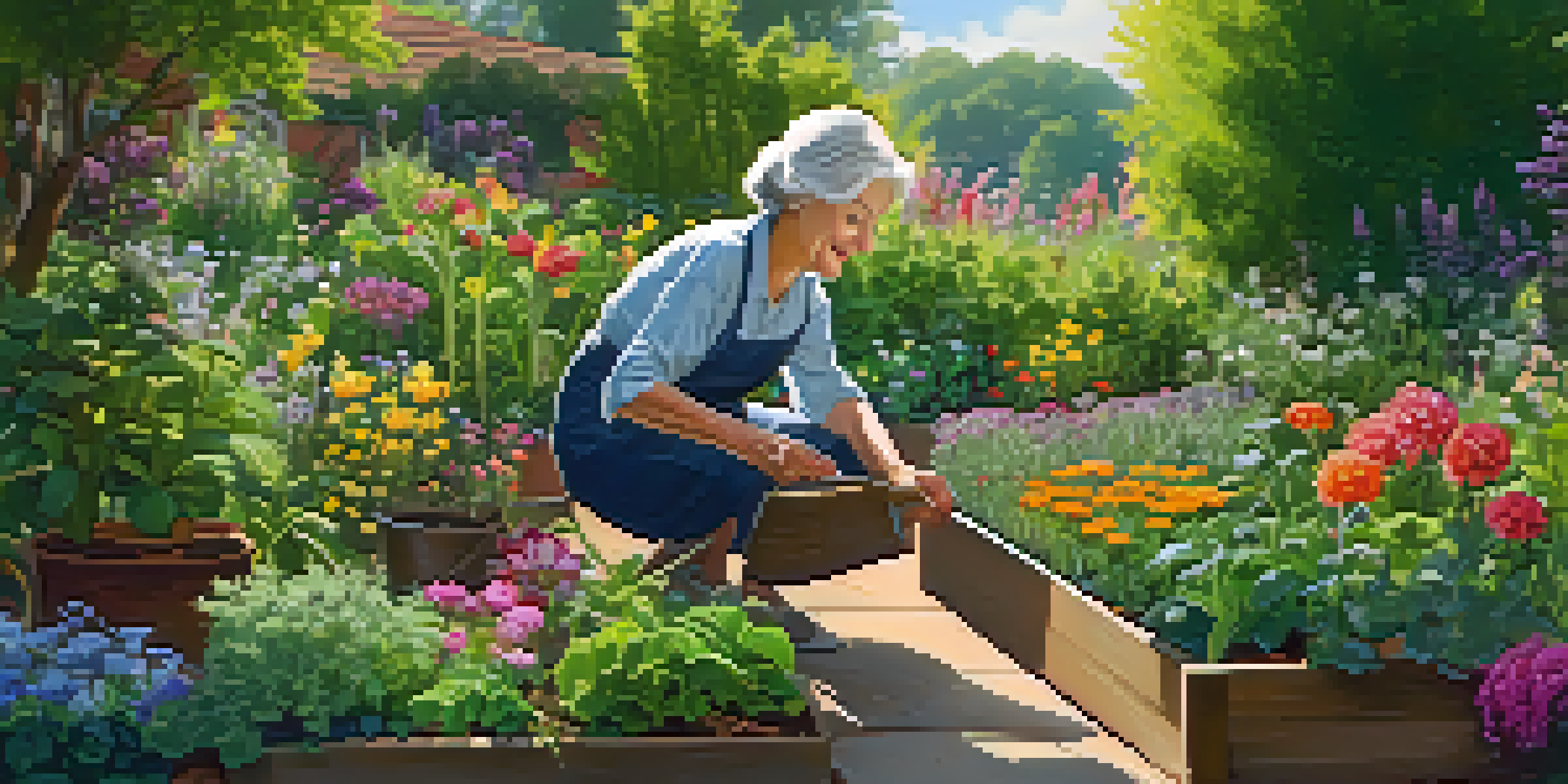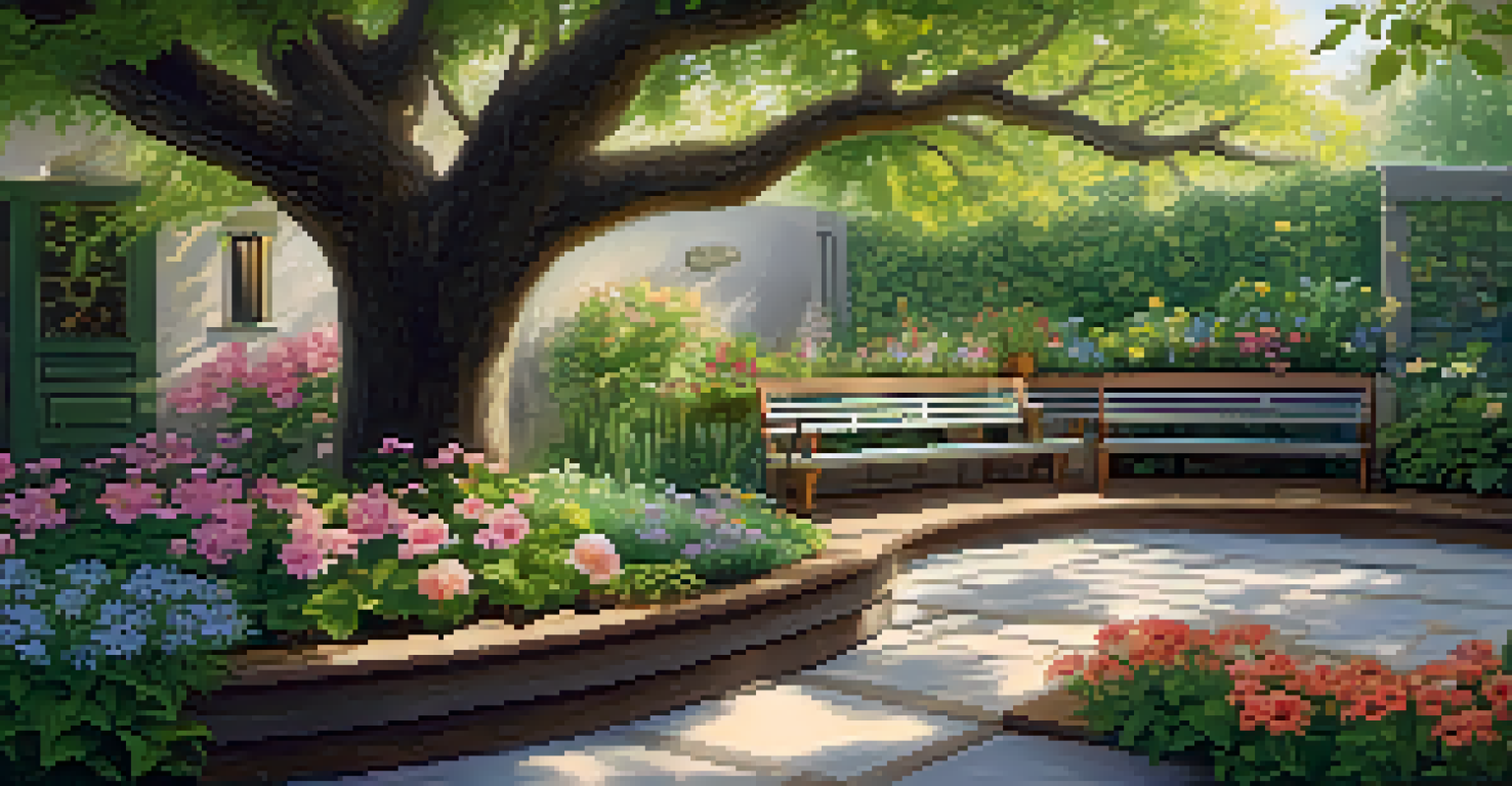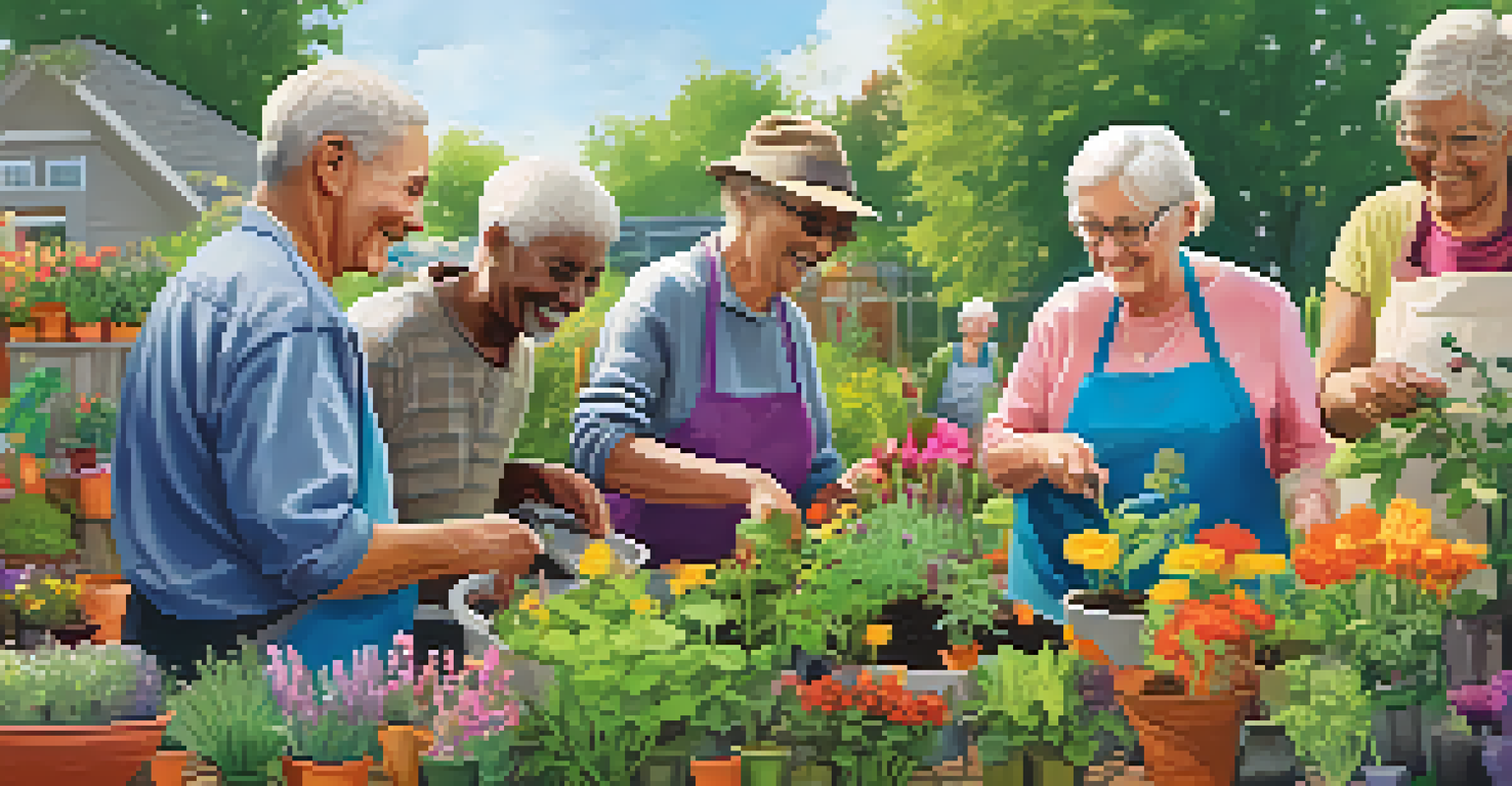Gardening as a Therapeutic Activity for Healthy Seniors

Understanding Gardening as a Therapeutic Activity
Gardening isn't just about planting flowers or veggies; it's a form of therapy that can greatly benefit seniors. Engaging with nature provides a sense of purpose and accomplishment, which is especially vital for older adults. When seniors dig their hands into the soil, they connect with the earth and experience a range of positive emotions.
Gardening adds years to your life and life to your years.
Moreover, the act of gardening can be meditative, allowing individuals to focus on the present moment. This mindfulness aspect can help alleviate stress and anxiety, leading to improved mental health. With each seed planted or weed pulled, seniors can find joy in simple, repetitive tasks that offer mental clarity.
In essence, gardening serves as an accessible outlet for self-expression and creativity. Whether it's choosing vibrant flowers or designing a vegetable patch, seniors can express their individuality and preferences through their gardening choices.
Physical Benefits of Gardening for Seniors
Gardening is a low-impact exercise that can enhance physical fitness among seniors. It involves various movements like bending, stretching, and lifting, which can help improve flexibility and strength. Regularly engaging in gardening can lead to better mobility and stamina, crucial elements for maintaining independence.

Additionally, spending time outdoors while gardening can boost vitamin D levels, which is essential for bone health and immune function. The combination of physical activity and sunlight exposure helps combat feelings of fatigue and lethargy, promoting overall vitality.
Gardening Enhances Mental Well-Being
Engaging in gardening can significantly improve mental health by reducing symptoms of anxiety and depression while fostering a sense of accomplishment.
It's also worth noting that gardening can be adapted to meet different ability levels. Raised garden beds or container gardens allow seniors with mobility challenges to participate without straining themselves, making gardening an inclusive activity.
Mental Health Improvements Through Gardening
Gardening has been shown to have significant benefits for mental health, especially in older adults. The repetitive nature of gardening can provide a calming effect, akin to mindfulness practices. Engaging with plants and nature can lead to reduced symptoms of depression and anxiety.
To plant a garden is to believe in tomorrow.
Moreover, the sense of accomplishment that comes from nurturing plants can build self-esteem and confidence. Seeing a garden thrive is a rewarding experience that reinforces the idea that one can create positive change, which is empowering for seniors.
Additionally, gardening can serve as a social activity. Participating in community gardens or gardening clubs fosters connections with others, combating feelings of loneliness and isolation that many seniors experience.
Gardening as a Means of Social Connection
For many seniors, gardening can be a wonderful way to connect with others. Whether it's sharing tips with neighbors or participating in community gardening efforts, these interactions can foster friendships and a sense of belonging. Social connections are crucial for mental well-being, and gardening can provide that avenue for seniors.
Community gardens often bring together diverse groups of people, offering opportunities for learning and collaboration. This shared passion for gardening can lead to meaningful relationships and support systems for seniors, enhancing their quality of life.
Physical Fitness Through Gardening
Gardening serves as a low-impact exercise that enhances physical fitness, improving flexibility, strength, and overall mobility for seniors.
Moreover, sharing the bounty of a garden—whether it's fresh vegetables or beautiful flowers—can also create bonds with family and friends. It's a delightful way to engage others and share the fruits of one's labor, thus promoting a sense of community.
Cognitive Benefits of Gardening Activities
Gardening can also provide cognitive benefits, keeping the mind sharp and engaged. Planning a garden layout, remembering plant care schedules, and even problem-solving pests or diseases engage various cognitive functions. This mental stimulation is vital for seniors, helping to ward off cognitive decline.
Research has shown that activities like gardening can promote neuroplasticity—the brain's ability to form new connections. By participating in gardening, seniors can enhance their memory, focus, and overall cognitive health, contributing to a more vibrant life.
Additionally, learning about different plants and gardening techniques can spark curiosity and foster a lifelong love for learning. This intellectual engagement is essential for maintaining mental agility and enthusiasm for life.
Creating a Senior-Friendly Garden Space
Designing a garden that caters to seniors' needs is crucial for ensuring a positive experience. Raised beds, wider pathways, and accessible tools can make gardening more enjoyable and less physically taxing. It's all about creating an environment that encourages participation rather than frustration.
Incorporating sensory elements such as fragrant flowers or textural plants can enhance the gardening experience. These sensory interactions can evoke positive memories and feelings, further enhancing the therapeutic benefits of gardening.
Promotes Social Connections
Participating in gardening activities fosters social interactions, helping seniors build friendships and combat feelings of loneliness.
Lastly, consider including seating areas within the garden. Having a comfortable place to rest can allow seniors to enjoy the beauty of their surroundings without overexerting themselves, making gardening a truly enjoyable pastime.
Getting Started with Gardening as a Senior
Starting a gardening journey as a senior can be both exciting and overwhelming. It's important to start small; perhaps with a few potted plants or a small herb garden. This approach not only makes the task manageable but also provides quick rewards, encouraging continued engagement.
Choosing low-maintenance plants can also simplify the experience. Consider easy-to-care-for options like succulents, herbs, or perennials that require less attention but still provide beauty and satisfaction.

Lastly, don't hesitate to seek help or join a local gardening group. Many communities offer resources and support for seniors looking to dive into gardening, making it a shared adventure rather than a solitary task.